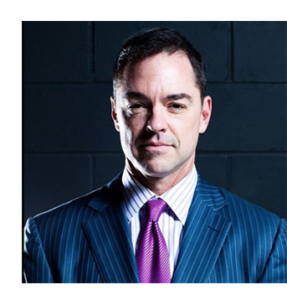Any type of injury to the brain has potentially dire consequences. Any time you suffer a head injury, you should seek immediate medical attention to diagnose any potential damage to the brain. The sooner a brain injury is diagnosed and treated, the more likely you are to fully recover. Undiagnosed brain injuries can result in catastrophic impacts and lifelong medical needs. Remember, just because you can’t see the injury doesn’t mean it’s not there.
After suffering a brain injury, you must make sure the injury is treated properly and promptly. Seeking immediate medical care will ensure that you don’t pay out of pocket for the medical expenses. Treatment for brain injuries can be extremely costly, costing tens of thousands or more. Working with a trusted California traumatic brain injury lawyer will ensure that you maximize your recovery.
When you’re suffering from a concussion, you need to focus on your physical well being and recovery. Recovering compensation after an injury typically involves a complicated legal process. Working with an experienced brain injury lawyer takes the legal stress off your shoulders. Without additional stress, you can give your body the attention it needs to recover to the fullest extent possible.
What Are Concussions?
Concussions are an often misunderstood category of brain injuries. Medically, a concussion is classified as a mild traumatic brain injury. When diagnosed as “Mild” simply refers to the initial presentation, not the ongoing symptoms. A concussion itself is not a mild injury and you should always take them seriously. All concussions have the potential to cause life-altering consequences.
In the United States, the most common cause of concussion is a sporting injury. Athletic sports cause between 1.6 and 3.8 million concussions annually. Most concussion victims are children. At a young age, your brain is still developing, making it more susceptible to long-term damage.
Concussions are caused by a sudden bump, blow, or jolt to the head. Sudden force may transfer to the head upon impact to another part of the body. The impact may disrupt brain functioning.
Concussions are particularly dangerous because they are often undetectable in MRIs or CT scans. In addition, not every instance of concussion causes a loss of consciousness. You could be in a car accident, experience severe whiplash, stay awake, and still suffer a concussion. People who have suffered one concussion are more likely to suffer subsequent concussions.
Injuries That Cause Concussions
When your concussion is caused by someone else’s negligence, it’s a frustrating situation because your pain and suffering was preventable. However, when someone else causes your injury, you may be entitled to bring a claim against them for damages.
Common causes that may form the basis of a claim include:
- Fighting;
- Car accidents;
- Slipping and falling;
- Tripping and falling; and
- Workplace injuries.
While a variety of circumstances may cause concussions, above are the most common. It’s important to know what caused your concussion so you can hold the responsible party accountable for your injuries. Concussions are common but that doesn’t mean treatment and recovery are inexpensive. The sooner you treat your concussion, which includes knowing how it was caused, the sooner you can get better.
To receive compensation, you must prove the accident caused your injury. That’s why it’s important to know how you were injured. Because concussions aren’t visible, it might not always be clear how you were injured.
Documenting your symptoms can help determine their origin. If you start having headaches, dizziness, or other concussions symptoms after trauma to the head, start keeping notes. Keep detailed notes on how you’re feeling day-to-day. Note your level of pain and what you do to help the pain dissipate.
These notes will come in handy when you speak with your doctor about your symptoms and the cause. Your doctor can review your notes to help determine not only what caused your concussion and the appropriate treatment plan.
Besides helping your doctor, your notes will also be useful for your concussion injury lawyer. We can use the notes you’ve provided to show who was at fault for your concussion. Identifying responsible parties is essential to holding them accountable for your medical expenses. Keeping detailed records will ensure that you get proper treatment in addition to maximizing your financial recovery.
Concussion Symptoms
One of the most troubling facts about concussions is that it may take days or weeks for symptoms to appear. Sometimes concussion symptoms never become apparent. However, even without obvious symptoms, concussions should not remain untreated. Failing to properly treat a concussion could result in a lifetime of medical needs.
The most common symptoms of a concussion include:
- Headaches
- Memory loss
- Confusion
- Loss of consciousness
- Dizziness
- Nausea
- Vomiting
- Ringing in the ears
- Slurred speech
- Extreme fatigue
Contact a medical professional if you show any symptoms of concussion after suffering a blow to the head. The sooner you begin treatment, the more likely you are to fully recover. Waiting for even a short period of time could cause dire consequences. More than 150 people die each day from traumatic brain injuries. Don’t wait to seek treatment.
Concussions Can Go Undiscovered
Because you can’t see a concussion, it can be difficult for your doctor to properly identify your injury. Being unaware that you have experienced a concussion can be extremely dangerous. If you or someone else notices the following behavioral changes, see your doctor immediately.
- Not feeling like yourself
- Inability to understand what you’re reading or seeing
- Irrational irritability
- Sensitivity to light
- Extreme emotional swings
- Nausea after a physical activity
- Excessive sleeping
Recognizing these symptoms is important to ensure you get the medical treatment you need. Even if you did not suffer a strike or blow to the head, you could still sustain a concussion. In football, for example, a block to the chest can jar the head and produce a concussion without any contact to the player’s head. Pay attention to your body and to others’ opinions about your mood.
What to Do Right After an Injury
Immediately following an accident or at the onset of symptoms, the victim should be stabilized. Stabilizing the victim’s head will prevent any further brain damage. If the accident is catastrophic or the injuries are severe, contact emergency medical technicians to ensure the victim is stabilized correctly.
If you notice symptoms after an accident occurs, whether hours or days later, get to the hospital as soon as possible. While you’re at the hospital, a doctor will review your medical records and gather information about how you’re feeling. Most importantly, the doctor will discuss the accident with you and what caused your head injury. Be sure to let your doctor know if you don’t remember the cause of the injury. Memory loss is a symptom that will inform the doctor’s diagnosis.
While at the hospital, the doctor may order tests. These tests will help to diagnose your injury and the possible treatment. Always report your symptoms honestly; otherwise, the doctor’s prognosis might be inaccurate based on the false information you provide. Have a friend or family member accompany you to help relay details to the doctor that you may not recall.
Getting Compensation for Your Injuries
Holding the negligent party accountable for your injuries means you can get compensation to cover your injury-related costs. The lifetime costs of traumatic brain injuries in the United States is around $60 billion. The significant cost accounts for medical expenses as well as lost productivity when victims are out of work.
You may be entitled to compensation for:
- Pain and suffering
- Emotional distress
- Lost wages
- Loss of companionship
- Medical bills
- Rehabilitation costs
Many concussion victims are too willing to take the first settlement amount they are offered. The insurance company for the negligent party will likely contact you shortly after your accident offering you a settlement. You should exercise caution before taking this offer without first talking to a trusted brain injury lawyer.
The insurance company knows that a low offer may seem attractive when you have mounting medical expenses. They also know you’re out of work so you’re concerned about how you will pay your bills. In this vulnerable state, they will offer you quick cash in exchange for a waiver of your right to bring a legal claim. It may seem like a fair deal at the time. However, keep in mind that insurance companies rarely offer enough compensation to cover all of your expenses.
We see this tragic situation happen over and over again. After accepting a lowball first offer, victims end up having to pay for medical expenses for an injury they didn’t cause. To avoid a financial burden, speak with a skilled and experienced brain injury lawyer before signing any settlement agreement.
A competent brain injury lawyer can help you predict an accurate estimate of your future medical expenses. This is important to make sure you receive the compensation you deserve in your settlement. We can anticipate the costs of medical treatment you will need based on your doctor’s recommendations. In addition, we will create an accurate accounting lost wages from the time you miss from work.
Taken together, these calculations and predictions aim to determine the costs you can expect to incur. You don’t want to pay out of pocket for any injury-related costs. Most brain injury claims settle out of court, but you should not settle unless you decide it’s in your best interest.
Living With a Concussion or Post-Concussion SyndromeM
After experiencing a concussion, the key to successful treatment is to follow your physician’s advice. Physicians may recommend making sure you get plenty of rest. Not rushing your recovery. Slowly reintroducing normal activities. If you feel dizzy or just not quite right, stop what you’re doing and take some time to rest. Continuing strenuous activity, despite signs that your body isn’t ready, may lead to further brain damage.
Other tips from your physician that may be recommended for treating a concussion include:
- Get adequate sleep
- Avoid strenuous physical activities
- Avoid activities requiring intense concentration
- Abstain from drinking alcohol
- Avoid playing video games
- Stay home from work, if possible
- Follow any treatment recommendations as prescribed by your doctor
We know you have heard this before, but it is vitally important that you adhere to your doctor’s treatment plan. Your doctor has provided you with a thorough evaluation. Following their directions closely will help you to feel better as soon as possible after your injury. Your doctor may require multiple follow up appointments to track the progress of your recovery. Missing any follow up appointments will only further delay your ability to get back to your normal life.
Long-Term Risks
Concussion victims may face a long road to recovery, suffering from long-term symptoms like:
- Cognitive decline
- Depression
- Anxiety
- Seizures
- Withdrawal from social interaction
- Aggressive behavior
- Irritability
- Alcoholism
- Drug addiction
- Chronic headaches
- Insomnia
Concussions may make individuals more susceptible to Alzheimer’s disease, dementia, cognitive impairment, and Chronic Traumatic Encephalopathy, commonly referred to as CTE. As in the case of CTE, it may take years for symptoms to develop. Concussion victims may potentially suffer or face a ticking time bomb for a long time without ever knowing.
How a Trusted Brain Injury Lawyer Can Help

You will want to hold the negligent party accountable for your injuries so that you can secure the compensation you deserve and afford the treatment and services you need.
To maximize your financial recovery, keep detailed notes about your injury, follow your treatment plan, and listen to others observing your behavior. Then look for a law firm that will investigate the circumstances leading to your injury by speaking with witnesses and reviewing medical records, then negotiating with the insurance company and representing you at trial, if necessary, to help you maximize your recovery.







